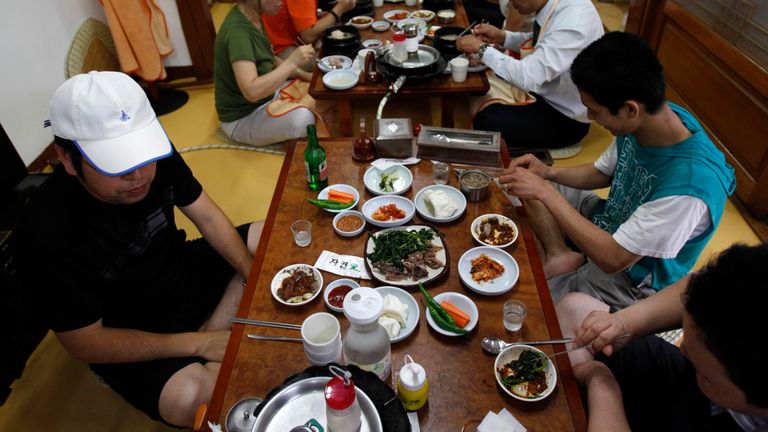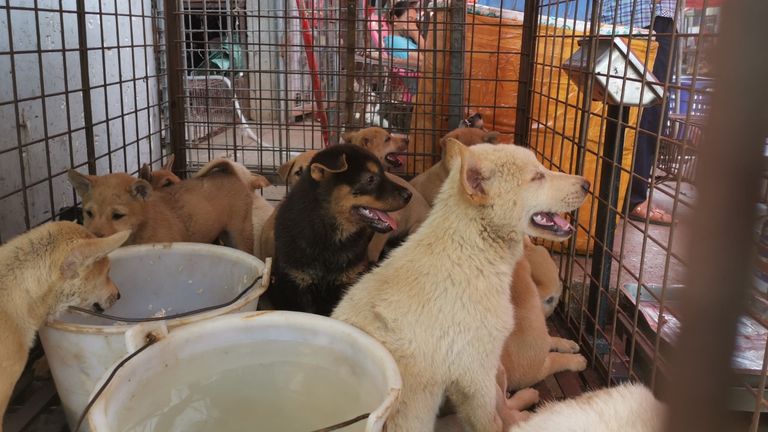Authorities have identified households with pet dogs and are forcing them to give them up or forcefully confiscating them and putting them down’

The move by the leader Kim Jong Un is thought to be aimed at appeasing rising discontent among the public amid a dire economic situation in the secretive country, including food shortages.
Pet dogs are thought to be owned mostly by the elite and wealthy in the capital Pyongyang and are seen by authorities a symbol of capitalist “decadence”, while ordinary people have pigs and other livestock.
Mr Kim issued a ban on pet ownership in July, denouncing it as “a tainted trend by bourgeois ideology”, according to South Korea’s Chosun Ilbo newspaper, citing a source.
The source said: “Authorities have identified households with pet dogs and are forcing them to give them up or forcefully confiscating them and putting them down.”
Some of the dogs are being sent to state-run zoos or sold to dog meat restaurants, the source added.
Dog meat is traditionally popular in China and on the Korean Peninsula, although consumption is on the decline in South Korea.
North Korean dictator Kim Kong-un has ordered citizens to hand over their pet dogs — so they can be killed for food.
The hermit state says pet dogs are now considered a “decadent” luxury and “a ‘tainted’ trend by bourgeois ideology,” and must be surrendered, according to a report by South Korea’s Chosun Ilbo media outlet.
“Authorities have identified households with pet dogs and are forcing them to give them up or forcefully confiscating them and putting them down,” the source said.
Once the pets are rounded up, it’s reported, some go to zoos and some are sold into the restaurant trade, where dogs are regularly consumed. Pyongyang, the Daily Mail reports, has a number of specialized dog eateries.
Chosun Ilbo reports that although pet ownership was long frowned upon in North Korea, the state had seemed to relent since the late 1990s, when the rich of Pyongyang started owning pets as symbols of superiority.
Crop damage
According to the Daily Mail, a recent report by the UN said up to 60 percent of North Koreans face “widespread food shortages.” In recent weeks, heavy rain and flooding have sparked concern about crop damage and food supplies in the isolated country.
North Korea’s national Red Cross Society is the only organization with access to all nine provinces, and more than 43,000 volunteers have been working alongside health teams on COVID-19 prevention efforts as well as helping flood-related work, said Antony Balmain of the International Federation of Red Cross and Red Crescent Societies.
“Hundreds of homes have been damaged and large areas of rice fields have been submerged due to heavy rain and some flash flooding,” Balmain said, according to Reuters.
North Korea’s Red Cross has deployed 43,000 volunteers to help communities prevent outbreaks of the coronavirus and provide flood assistance.
Kim declared an emergency last month and imposed a lockdown on Kaesong, near the inter-Korean border, after a man who defected to the South in 2017 returned to the city showing coronavirus symptoms.
— with files from Reuters

